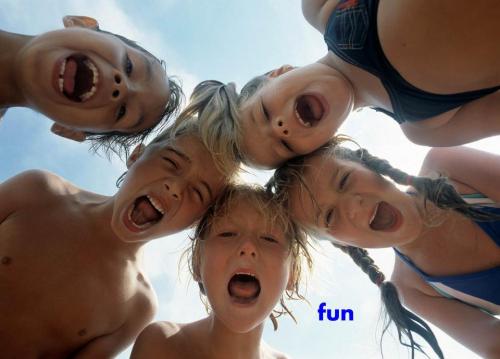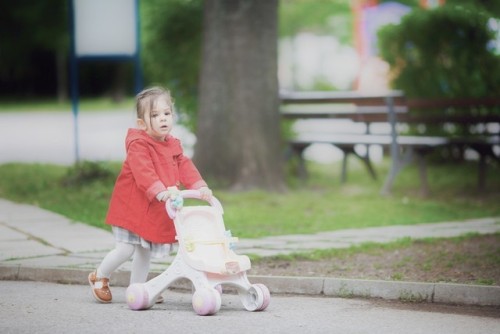#child welfare
The piece below was written by Child Advocate Khalid Allahar, in rememberance of Carla Merhige. Her advocacy efforts and kindness will forever linger in the hearts of those that had the priviledge of meeting her, and even those who haven’t, as her efforts live on through all those she inspired.
Faces come in and out of our lives everyday, each serving their purpose. Few linger in our thoughts long after they’re gone. Carla Merhige is one of those that linger in my thoughts, as she does for those who knew her. She was an inspiration and enduring example of how one should treat others.
Carla seemed to be born a singer and spent her life singing: Inspiring her class mates with her twin sister Lisa as they sang in school plays, enticing a newlywed couple onto the dance floor for their first dance with a song and receiving cheers from her friends and co-workers as she performed in singing competitions. Countless times we would sit in our office and through our paper thin walls you would hear Carla, working at her desk, effortlessly singing a Celine Dion or Barbra Streisand tune, she was our very own singing supervisor.
But it is how Carla used her voice for the last nine years of her life that is also remembered. Fighting, caring, and representing abused and neglected children in our community as a Guardian Ad Litem and mentor to those who she led as a supervisor. She used her voice to sing at the National Adoption day celebrations, which is now known as Carla Merhige National Adoption Day, in honor of all that she did for our communities most vulnerable and every year she is remembered on this day.
The job was never easy, but Carla made it seem that way. Whenever we had an issue, we would call her and she would talk us through what we needed to be done. If anyone ever had something to talk about, there was no need to set an appointment, her door was always open. When you walked in she was never too busy to stop what she was doing, put down her pen or stop typing and look at you with smile and ask, “How can I help you?” She was there for you when you needed. Her friends saw this quality and so did the children she represented. She was not tainted by nine years of dealing with the drama of the dependency system because she knew what needed to be done.
I recall one day when I needed her help on a case and a staffing with the agency was needed. Carla came with me to the staffing and after what seemed like two hours talking back and forth for what we wanted for the child in this case, Carla still had the energy to go another round. She continued arguing our point even after they gave into our demands. I had to subtly hold her hand and whispered to her “Hold on Carla, let them talk, I think they’re agreeing with us now”. She never gave up when all seemed hopeless, because as an adult ,she knew that if she decided to give up and walk away, a child would still be in the system with no one to stand up for them. Carla’s efforts contributed to the lives of countless children that she advocated for and her efforts continue today through the efforts of those she inspired to take that extra step in advocating for a child .
We all want to leave our mark on this world when we leave and some do not know how. I know I spent a great deal of time thinking about the track I am taking in life. Am I doing something to benefit humanity? It took me years to realize that I don’t need to run off to a developing nation to save humanity; I am already making a difference by what I am doing here with the Guardian program. We, like Carla, are serving a purpose. Our efforts are not in vain. We have inspired young adults to choose a career in life, found families for our children that will see them through the roller coaster of life, discovered hidden talents in the children we represent and found ways to help them develop when no one else had the time. We are all that voice that Carla strived to be everyday.
Still want to learn more about what a Guardian ad Litem does before committing? Join us on November 21st for an information session with free appetizers!
RSVP to: [email protected]
Post link
I am a Guardian ad Litem so that every child can DREAM!
Our Guardians work hard advocating for children in court to ensure that no opportunity is denied to them outside of it. Want to learn more about volunteering? Give us a call at 305-638-6861.
Post link
My partner and I are going through training to become foster parents!
And the classes so far are kinda meh, but not particularly bad. It’s good information generally no matter how it’s presented.
But tonight’s class was… something else.
It was taught by an instructor who:
Tried to make a point about kids being at different developmental levels than their ages would suggest- ended up seeming to encourage child marriage due to the fact that sometimes “16 year olds make better mothers than some 24 year olds.”
Warned people to be aware of teens who may fall in love with their foster parents and home wreck. Told the story of a teen who fell in love with his teacher, seduced her, and she ended up in prison having his baby while abandoning her own spouse and child. This was not in any way framed as rape of a minor and the teacher was 100% the victim in this scenario.
Listed the two types of students as “good” and “slow”. Repeatedly.
Tried to make a list of all the religions a child might have previously been a part of, came up with “Catholic, Presbyterian, …and Lutheran.”
Tried to make the point that the resources/preparation a child is given throughout their childhood determine the final product of a well adjusted or maladjusted adult. Made an exceptionally long list of the things you could do with apples (based I assume on the fact that there was a picture of an apple on the slide?), forgot the point she was trying to make, moved on to the next slide.
Cited the reason you aren’t allowed to use physical punishment with foster children was not that they’re literally someone else’s kids, have likely experienced trauma that could be exacerbated by physical punishment, and also there’s a lot of evidence that physical punishment causes more problems than it fixes- It’s actually that they’re “trying to prevent brain damage in foster kids.” She said this 3+ times.
Finally, knowing that there were 2 entire, real life adult trans people in the room, presented a 3-minute, clearly improvised lecture on transgenderism in youth in which she explained that the reason so many kids are becoming trans these days was because they saw it on TV and want to emulate it and/or want to have the benefits afforded by the opposite sex. I wish I could remember more of this lecture but it was so bad I was spending everything I had trying not to burst out laughing. I did try to offer a correction at the end, which she accepted until I started talking, cut me off, explained something else completely false about trans kids, and then continued like nothing had happened.
Like… I really feel sorry for her because my partner and I genuinely think she has the early-mid stages of dementia, but lordy if this is all the training a foster parent gets I don’t think its gonna be an easy road for them…
When Kids Have to Act Like Parents, It Affects Them for Life
“I spent a lot of time babysitting [my siblings] as a teenager and I think it’s been a challenge for me to separate out feeling like I’m a parent to them.”
This has often caused rifts between the siblings into adulthood, Rosenfeld says. “I’ve always been somebody who thinks it’s my job to offer help, care, and advice even when it’s not asked for.”
How does someone learn that becoming self-reliant is safer than trusting others? Nakazawa believes that in destructive parentification, “you don’t have a reliable adult to turn to.” And if a child’s early experiences at home consisted of making sure everyone else’s needs were met, then the “child doesn’t feel seen.
This sense of responsibility and compulsive caretaking can follow them into future relationships as well. “You tend to project it onto other people in your life,” Rosenfeld says. This isn’t surprising, claims Jenny Macfie, an associate director of clinical training at the University of Tennessee and another prominent parentification researcher, as “adults who report role confusion in their childhoods may have difficulty with their identity development,” and this in turn, can affect a person’s romantic relationships.
We’re only beginning to understand the interplay between sibling dynamics, parental neglect, and health outcomes later in life. We need to see more research on prevention and treatment options.
Post link





